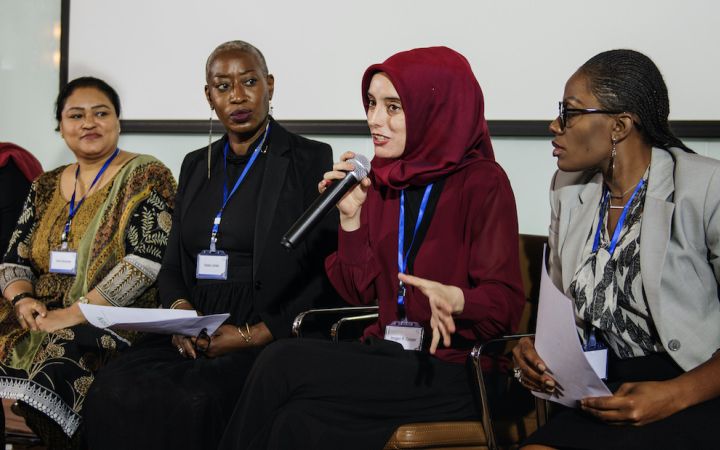16 March 2022, Geneva, Switzerland - Women and girls are, and continue to be, disproportionately affected by the negative impacts of climate change. For instance, women from marginalized communities make up a large percentage of poor communities worldwide that rely on natural resources for their livelihoods, particularly in rural areas. The effect of climate change such as, heatwaves, droughts, floods, and hurricanes disproportionately affect women and, as the climate crisis intensifies, women will struggle the most.
On the other hand, women are powerful agents of change despite structural and socio-cultural barriers. As such, it is vital to ensure equal space and resources for women to participate in climate change decision-making and climate action at all levels. In this spirit, several women from different sectors have been sharing their experiences on how they have been making a difference in their communities. Their climate actions have been inspiring many more people to take small steps towards a climate-resilient society. Get to know the stories from Camile Clarke from Jamaica; Karen Miranda from Panamá; Asha Alexander from the United Arab Emirates; Andrea Monroy-Licht from Colombia and Aikaterina Lengou from Greece.
In addition, UNITAR/UN CC:Learn, in collaboration with Global Environment Facility (GEF), the United Nations Development Programme (UNDP), the GEF Small Grants Programme (SGP) and with input from other partners, has been offering free training on gender and climate change-related topics with the aim of providing users with the knowledge and tools to mainstream gender, and to be effective change-makers for sustainable development. So far, 32,000 learners have joined our course on Gender and Environment and 3,200 have been fully certified. 96% of our students found the course useful and 87% found the content relevant for their job.
More recently, UNITAR/UN CC:Learn, in partnership with UN Women and UNEP under the EmPower project, has launched an online training on Gender Equality and Human Rights in Climate Action and Renewable Energy with the aim of providing participants with the specific knowledge and tools to integrate and implement gender equality in climate change adaptation and mitigation efforts, with a particular focus on renewable energy access and entrepreneurship. 96% of participants have said they will apply the knowledge and skills acquired through the course.
In addition, these partners have been organizing an e-workshop to provide more in-depth training to government officials, policymakers, and financial institutional representations from Bangladesh, Sri Lanka, Cambodia, Indonesia, and Vietnam. This workshop, scheduled in April 2022, will build the capacity of decision-makers to integrate gender and human rights into climate policies and commitments.


